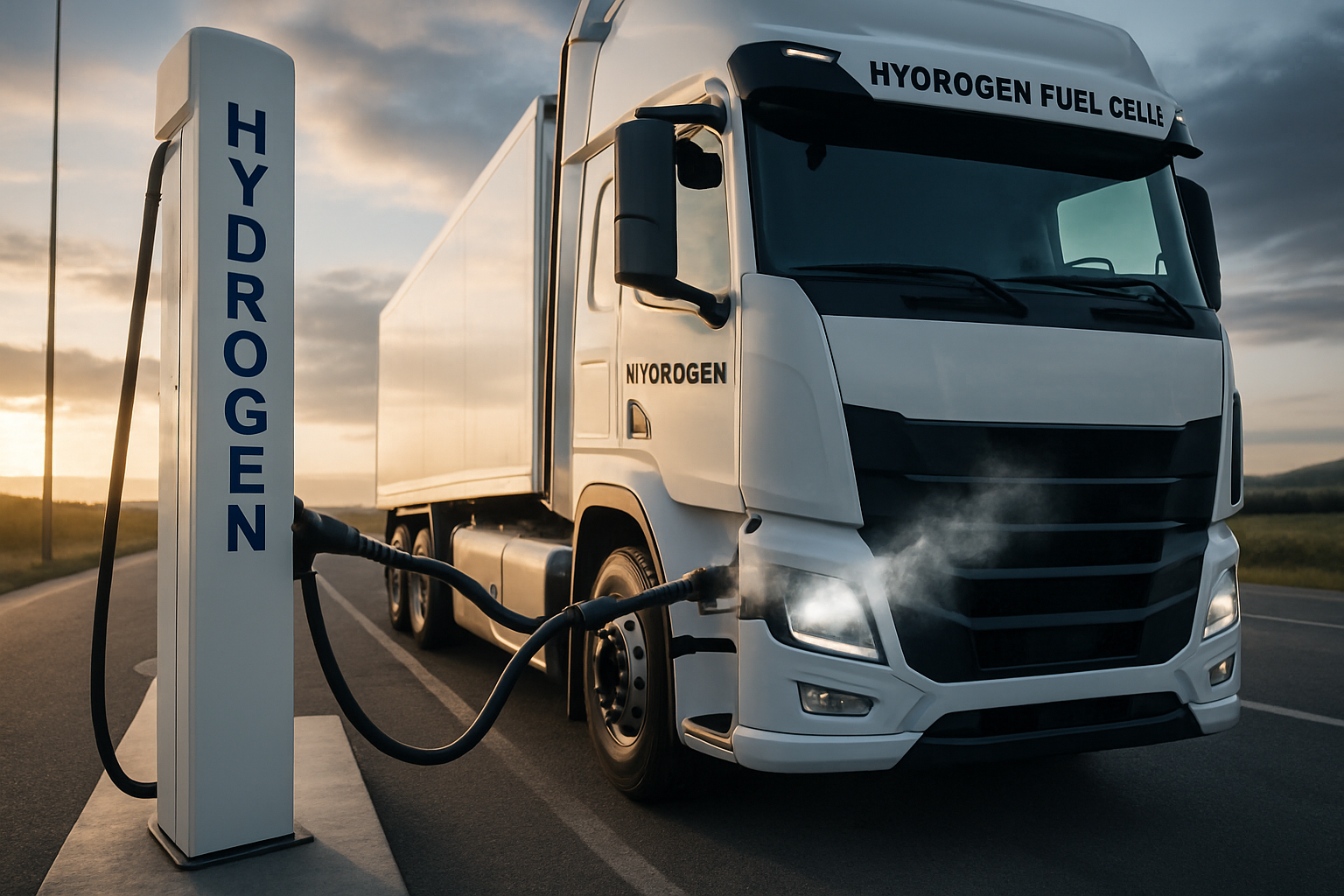Hydrogen Fuel Cells: The Quiet Revolution in Heavy-Duty Transportation
Picture a world where massive 18-wheelers cruise down highways, emitting nothing but water vapor. This isn't a far-off fantasy, but a rapidly approaching reality thanks to hydrogen fuel cell technology. As the automotive industry grapples with the challenge of decarbonization, hydrogen is emerging as a potent solution for heavy-duty vehicles, promising to revolutionize long-haul transportation without compromising on performance or range.

This process occurs silently and continuously, providing a steady stream of electricity to power electric motors. Unlike traditional combustion engines, fuel cells have no moving parts, resulting in higher efficiency and lower maintenance requirements. The technology’s scalability makes it particularly attractive for heavy-duty applications, where battery weight and charging times can be prohibitive.
Overcoming the Infrastructure Hurdle
One of the primary challenges facing hydrogen fuel cell adoption is the lack of refueling infrastructure. However, this landscape is rapidly changing. Major truck stop chains and energy companies are investing heavily in hydrogen refueling stations along key freight corridors. The goal is to create a network that mirrors the existing diesel infrastructure, allowing for seamless long-haul operations.
Innovative solutions are also emerging to address the chicken-and-egg problem of infrastructure development. Mobile hydrogen refueling units, for instance, can be deployed quickly to support early adopters while permanent stations are built. Additionally, on-site hydrogen production through electrolysis powered by renewable energy is gaining traction, potentially allowing fleet operators to generate their own fuel.
The Economics of Hydrogen in Trucking
While the initial cost of hydrogen fuel cell trucks is currently higher than their diesel counterparts, the total cost of ownership (TCO) is expected to reach parity within the next decade. This shift is driven by several factors:
-
Increasing production scale, leading to lower vehicle costs
-
Improved fuel cell durability, reducing maintenance expenses
-
Rising carbon taxes and stricter emissions regulations, favoring zero-emission solutions
-
Potential for lower fuel costs as green hydrogen production scales up
Fleet operators are taking notice. Major logistics companies are already piloting hydrogen trucks, with some committing to significant fleet conversions in the coming years. The promise of lower operating costs, coupled with the ability to meet increasingly stringent emissions targets, makes hydrogen an attractive proposition for the trucking industry.
Beyond Trucking: Diverse Applications of Hydrogen Fuel Cells
While long-haul trucking is at the forefront of hydrogen fuel cell adoption in transportation, the technology’s potential extends far beyond. Other heavy-duty applications showing promise include:
-
Buses: Urban transit agencies are increasingly turning to hydrogen buses for their zero-emission fleets, appreciating the quick refueling times and long range.
-
Rail: Hydrogen-powered trains, or hydrail, are already operational in several countries, offering a clean alternative to diesel on non-electrified routes.
-
Maritime: From ferries to container ships, the maritime sector is exploring hydrogen as a means to decarbonize oceanic transport.
-
Aviation: While still in early stages, hydrogen fuel cells are being investigated for small aircraft and could potentially play a role in sustainable aviation.
-
Off-road vehicles: Mining equipment and construction machinery are prime candidates for hydrogen power, benefiting from the technology’s high energy density and quick refueling.
The Road Ahead: Challenges and Opportunities
As with any emerging technology, hydrogen fuel cells face hurdles on the path to widespread adoption. The production of green hydrogen – made using renewable energy – needs to scale up significantly to meet potential demand. Safety concerns, while largely addressed by modern engineering, still require public education and acceptance.
However, the potential benefits are immense. Beyond zero-emission operation, hydrogen fuel cells offer a pathway to energy independence for many countries, reducing reliance on imported fossil fuels. The technology also provides a means of energy storage, helping to balance grids with high renewable penetration.
As automakers, energy companies, and governments increasingly align their strategies around hydrogen, we stand on the cusp of a transformation in heavy-duty transportation. The quiet hum of fuel cell trucks may soon become a familiar sound on highways worldwide, heralding a new era of clean, efficient, and powerful mobility.






